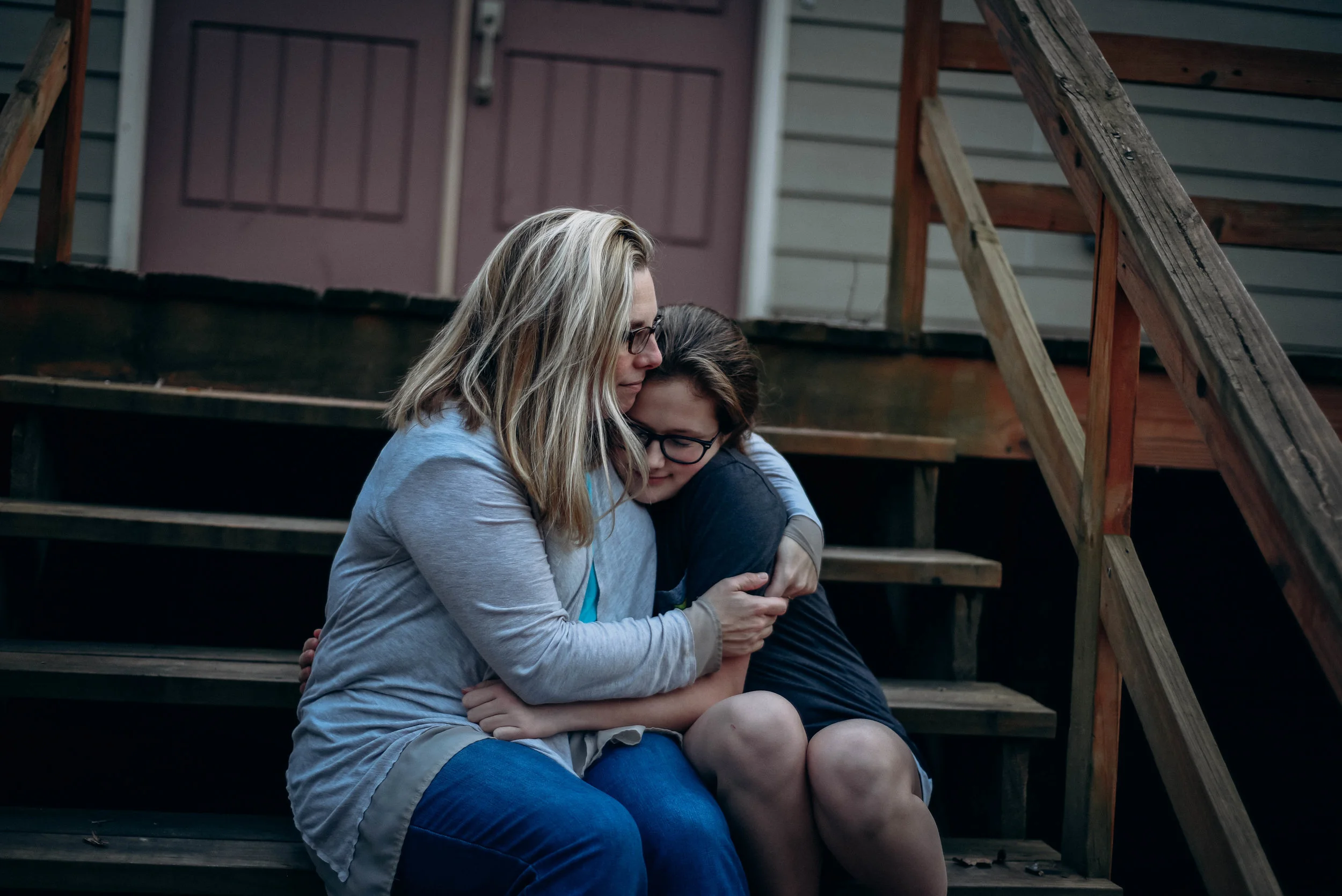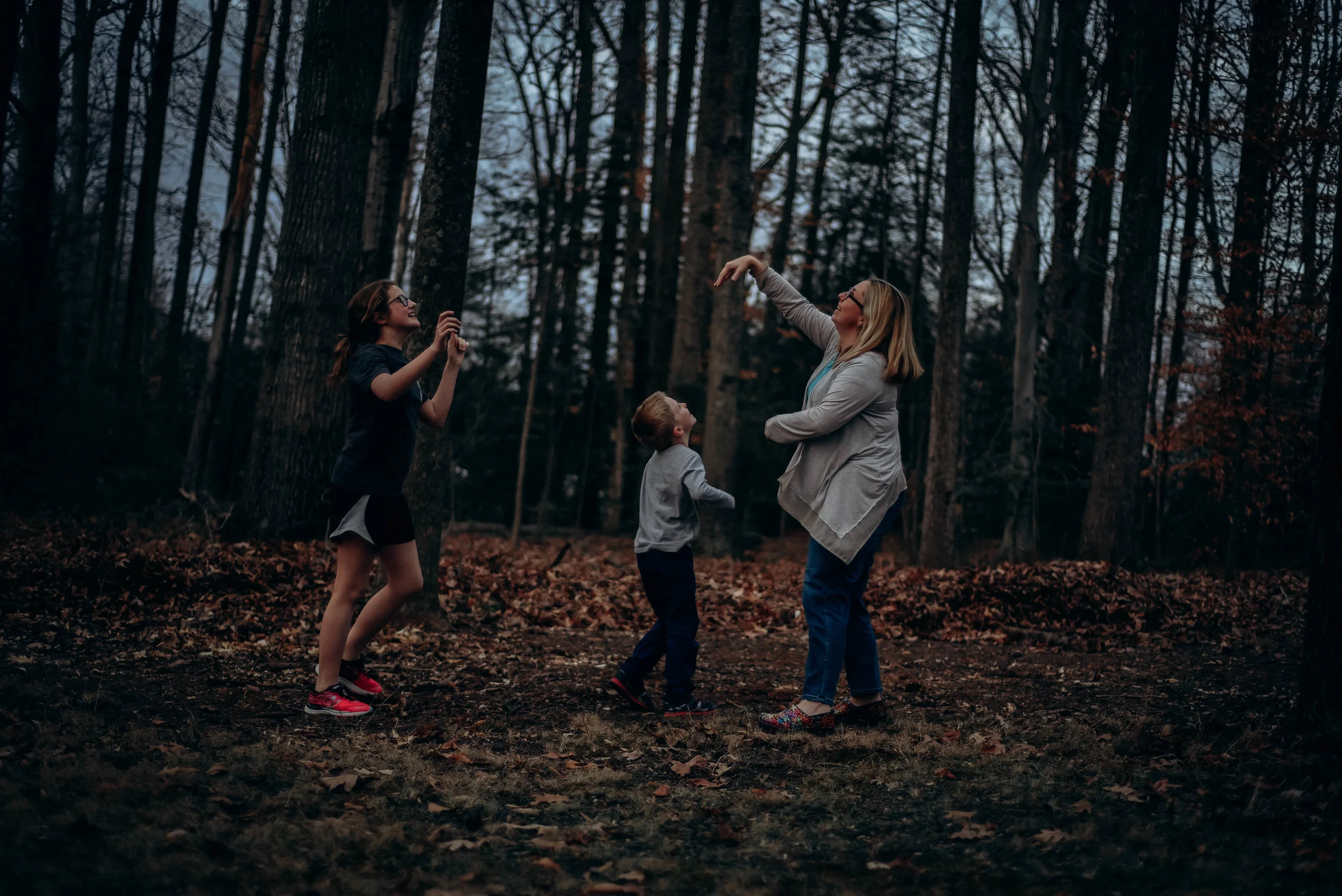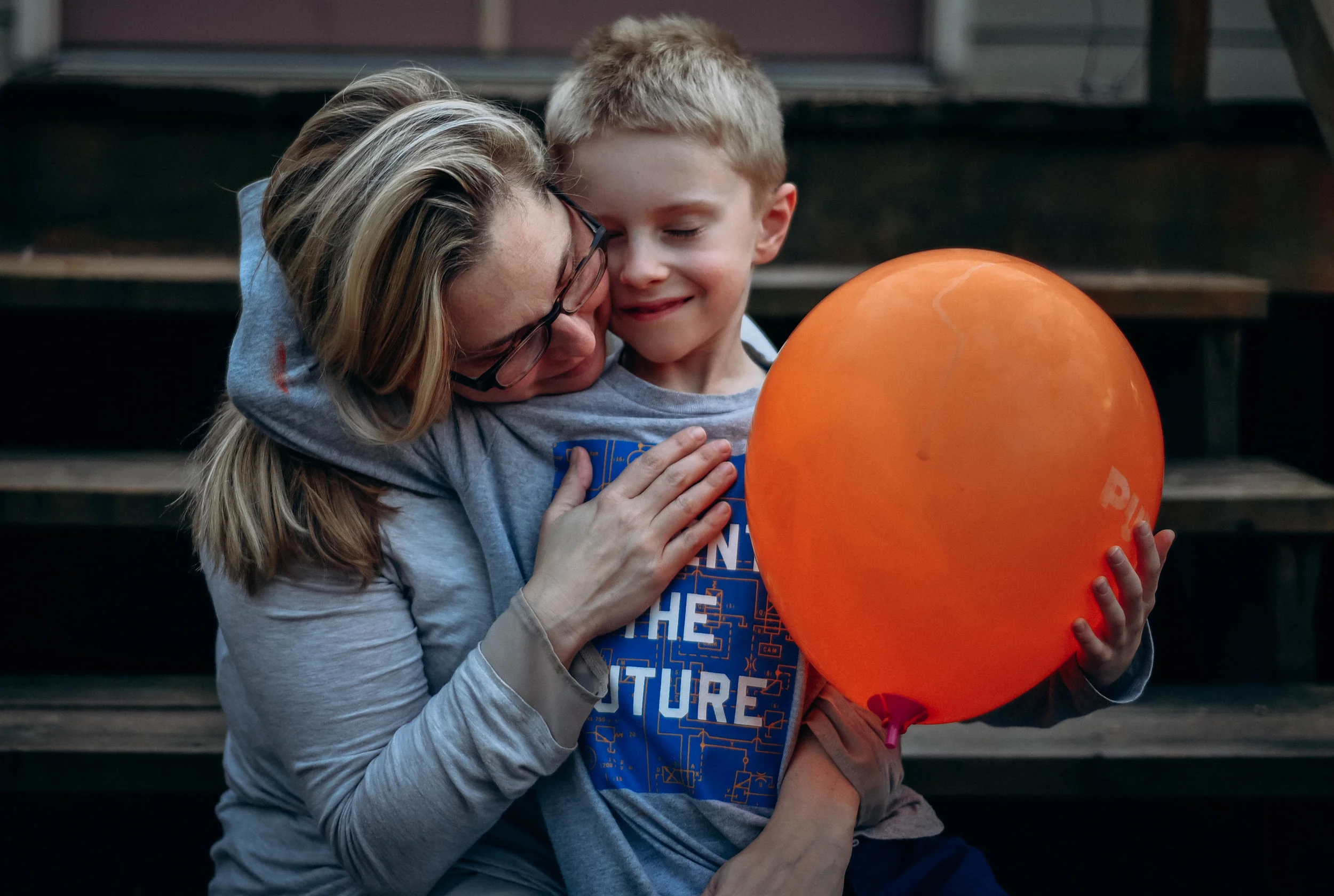Story #21 - Elizabeth, Manassas VA (USA)
I got pregnant the first time in 2003, but we had a miscarriage at about eight weeks. It was devastating in its own way because I didn't have any living children. But my midwife was fantastic, we healed, and the next time I got pregnant, it was with my daughter.
Initially, everything went well, and then at about month four, I became really depressed. I am in mental health so you'd think I would have put these puzzle pieces together, but I didn't. There wasn't a lot of attention to perinatal mood disorders back then, and especially not about depression during pregnancy. I eventually went on medication because I was at a point where I didn't have a choice: I didn't even know if I would make it to the birth.
So, I worked with this doctor and we got me to a point where I wasn't depressed anymore. I was still really uncomfortable, but I was doing ok. My daughter was two weeks late and I was induced. I was completely unprepared. I had wanted a natural childbirth but had back labor so in the end, I asked for an epidural. She came and she was healthy. Very cute and cuddly.
Then the breastfeeding problems started. She kept losing weight. I had been told that everyone can breastfeed if they try hard enough, which of course isn't accurate. So, I kept trying. For over a month I wasn't sleeping at all so even on the medication, I developed really severe OCD. It was crippling.
I eventually worked with my psychiatrist, a lactation consultant, and my daughter's pediatrician to accept that I had to supplement. I remember I was so anxious that the inside of my skin itched. There's really no other word for it. We upped my medication and my psychiatrist talked to me about protecting my sleep - four to five of uninterrupted sleep. Then things got lovely. But it took a year.
For her first year, I was not well. I did the best I could, but it's hard to put that into context. If something goes wrong after with your kid you go back to "it's my fault." For many of us, there's this sense of responsibility that never leaves you. In the back of your head, you never know if doing the best you can is actually good enough.
My daughter was spunky and sweet and curious. We enjoyed her a lot. When she was three, we decided to get pregnant again and we had a miscarriage. That second miscarriage wasn't as bad because I knew I could have a baby. Still, heart-wrenching, but not as horrible as the first.
Then we got pregnant again. The baby was moving and I was certain she was a girl. Her name was Lydia. One day, I went in for my high-risk ultrasound - by myself because I had been through a lot of them and I was sure everything was ok, but I also knew what I was looking at. Something was wrong. I couldn't see the end of the head.
The doctor came in and said to me, "Your baby has anencephaly, that means her skull isn't closing and won't close, and the baby only has a brain stem. We recommend terminating." Then she left. I started sobbing, but for some strange reason, I found myself trying to take care of the ultrasound tech, asking her how she could do this job and consoling her. I was in a haze.
They left the picture up so I could see, but I couldn't connect it with what I knew was true about my baby. I asked the tech who went to term with these babies and she said, "Christians do." I'm an Episcopalian and Christianity is complicated and very diverse. It's not as simple as one single belief, but she was kind of snarky about it. I was left in the dark.
I found out later - by myself, doing research - that there's this field called 'perinatal hospice.' There's also the possibility, if you go to term, for your baby to be an organ donor. I had to find out all of this stuff on my own and wrestle with this by myself. No one provided help about how to talk to your child about it and how you prepare yourself.
I met with my priest, talked to people who aren't religious, to OBs and midwives. The choice I made is not relevant. I was in this place of grief, knowing that my child wasn't dead now, but would die. Likely during birth. I could go to term or terminate. There's no reasonable choices: it's a cold corner of hell.
The whole year after Lydia passed was a blur. We had a ceremony. I have a box that has all the cards and the things people brought me. I had everyone make or bring a bead and I have this really beautiful necklace that is chunky and mismatched. I kept it with me a while after Lydia died. I put it out periodically. I also learned that the verb 'to bead', in many places, is the same as the verbs 'to pray' or 'to meditate.' So again, out of this horrifying experience, this beautiful burst of light happened to me.
We also had a great support network and our daughter had a lot of amazing people surrounding her, but my husband and I - more me - were caught offline. That time in my life was probably the darkest. But we tried to make something beautiful come out of it: I knew all the research I had done and the relationships I had forged would help me and I would be able to help others. We gave blood for a research study at UNC for neural tube defects. Those folks were also really helpful in the healing process, although for very long, I couldn't find any meaning.
We waited a full year after Lydia and then tried again to have a child. It took us a long time to get pregnant with our son. I didn't want him to be a child from loss, even though that was partly going to be his story, chronologically. We were all nervous though I can't say enough amazing things about my midwife/OB team. We were on everything right away, I had a pregnancy plan for my mood, a lot of social support and I was on medication. I also had insight that this would pass. I didn't do pregnancy well, but I knew how to handle it.
We were induced early. I was able to see him being born with a mirror. I got to help him out. Postpartum, I had a little bit of depression but no anxiety. I protected my sleep and I knew I was going to supplement right away. We also planned that for eight weeks, I wouldn't be alone. I had this community of people who were really motivated and kind. I really was able to enjoy him when I was with him.
I knew pretty shortly after his birth that something wasn’t quite right with him. Of course, when you had a child die people think that you’re overreacting. At his 12th month visit, I had a list of things about what was not happening and his pediatrician said, "You’re talking too much for him." That was exactly the problem: he wasn’t talking. He also wasn’t eating the way other kids eat. I had to follow him around the house to shove food in his mouth.
We finally got referred to specialists: GI, OT and Speech, allergist, immunologist, and to a feeding clinic. I really wanted to make sure we would do early intervention, but it was a full-time job. When your kid has a special need it’s really scary. This is a challenge too because it lines up sometimes with what we know happens when you have a depressed or anxious mom. Some of those could be side effects from the medication.
However, I am steadfast that I made the best decision I could at the time. I suspect, had I not been treated, it would have been a lot worse. He was also getting a lot of sinus and ear infections. So much that he was hospitalized twice with RSV. He required sinus surgery and ear tubes. I changed pediatricians until I found one who was clinically excellent. I was not going to have half-wits caring for my son. We found a real gem and, as strange as it sounds, he’s part of the family now.
Again, of all the crappiness, we met wonderful people who are kind and understanding about what’s like to have a special need kid. That’s worth its weight in gold. And after our son had his sinus surgery, he really turned it around: he hasn’t stopped talking since. He is non-stop.



